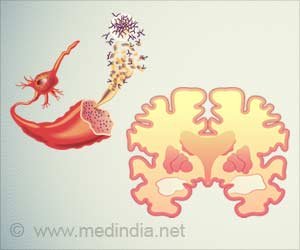Game-Changing Discovery Leads to New Horizons in Alzheimer’s Treatment

researchers from Ruijin Hospital, affiliated with Shanghai Jiao Tong University School of Medicine, and other three teams detected the Shanghai APP mutation in a Chinese patient who developed memory decline in his mid-70s (
).
Exploring the Therapeutic Implications of the Shanghai APP Mutation
Neuroimaging techniques confirmed the presence of widespread amyloid £] deposition, a key hallmark of AD.
Using molecular dynamics simulation and in vitro experiments, the team found that the E674Q mutation led to increased processing of APP and production of amyloid £], a toxic protein linked to AD.
Advertisement
Additionally, the biochemical aggregation experiments suggested that the E674Q peptide exhibited higher aggregation than the wild-type peptide, especially the formation of filaments that hinged several fibrils.
To further investigate the mutation’s effects in vivo, the researchers introduced the E674Q mutant APP gene into the hippocampi of two-month-old mice using adeno-associated virus (AAV) gene transfer.
The study revealed that the E674Q mutation resulted in impaired learning behavior and increased pathological burden in the mouse model, demonstrating its pathogenic role in AD.
The E674Q substitution exhibited a strong amyloidogenic effect, and, to the researchers’ knowledge, it is the only known pathogenic mutation within the amyloid processing sequence causing LOAD.
From Discovery to Hope
This finding is significant, as it may open up new avenues for understanding the development of LOAD and lead to more effective treatments for patients suffering from this form of Alzheimer’s disease.
The discovery of the novel Shanghai APP mutation provides a unique opportunity to delve deeper into the molecular mechanisms underlying LOAD.
Further research into the effects of the E674Q mutation is essential to explore the potential development of targeted therapies or interventions that may slow or halt the progression of AD.
By understanding how this specific mutation contributes to the onset and progression of LOAD, scientists may be able to devise new strategies for preventing or treating this devastating disease, ultimately improving the quality of life for tens of millions of patients and their families.
Reference :
- E674Q (Shanghai APP mutant), a novel amyloid precursor protein mutation, in familial late-onset Alzheimer’s disease
– (https://www.sciencedirect.com/science/article/pii/S2352304223001277)
Source: Eurekalert
Source link
#GameChanging #Discovery #Leads #Horizons #Alzheimers #Treatment



